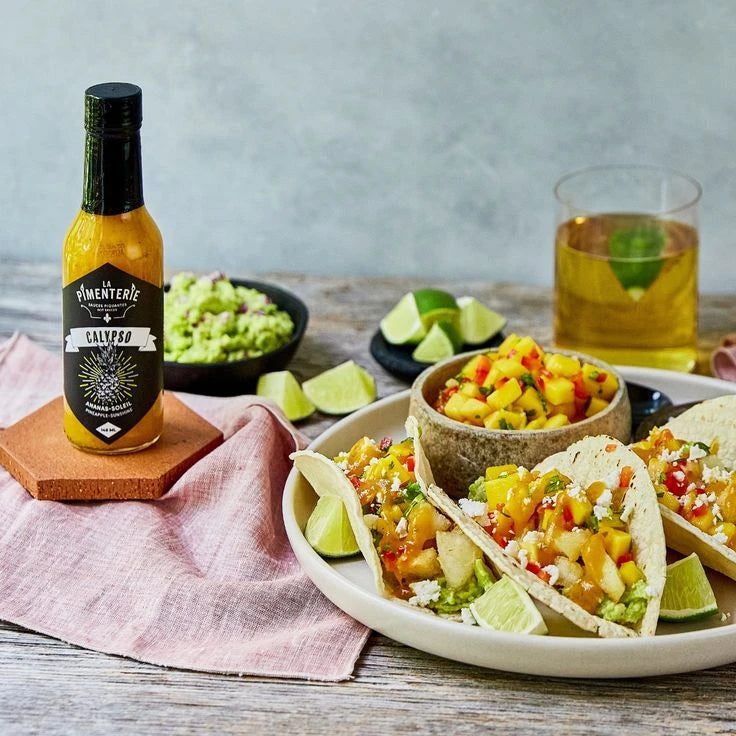Molecular gastronomy is an innovative approach that combines science and gastronomy to transform the way we perceive flavors and textures. François Chartier, a collaborator at La Pimenterie , uses this discipline to explore the chemical and aromatic interactions between ingredients. In the case of ANTIPODE sauces , molecular gastronomy allows us to play on the sensations of fire and cold, offering a unique sensory experience.
This approach is based on understanding aromatic molecules and their impact on the taste buds. By combining different peppers, herbs, and fruits, chefs can create hot sauces that not only sting, but also stimulate multiple senses at once. This transforms a simple tasting into a true gastronomic and experiential journey.
Molecular gastronomy techniques include manipulating textures, creating temperature contrasts, and studying aromatic harmonies. François Chartier applies these principles to develop balanced, innovative, and gourmet hot sauces, such as the Antipode duo. Each ingredient is selected to optimize its role in the overall taste experience.
This discipline also encourages experimentation and wonder. Chefs and amateurs alike can test different combinations, adjust proportions, and create new sensations with each tasting. It thus transforms the kitchen into a creative laboratory, where science and gastronomy meet.
In short, molecular gastronomy is revolutionizing the use of hot sauces in gastronomy. Thanks to the expertise of François Chartier and the innovation of La Pimenterie , sauces like Antipode are becoming tools for creativity and pleasure, demonstrating that science can enrich and enhance the culinary art.











0 comments